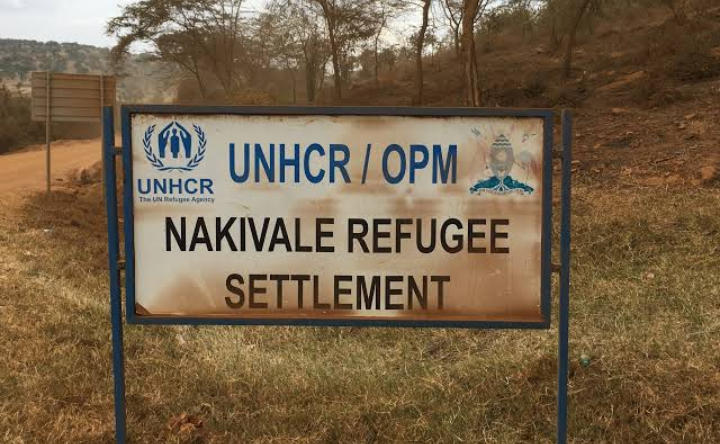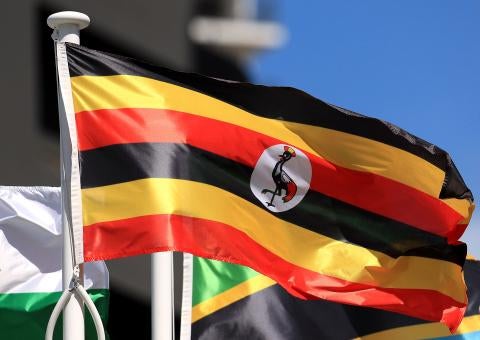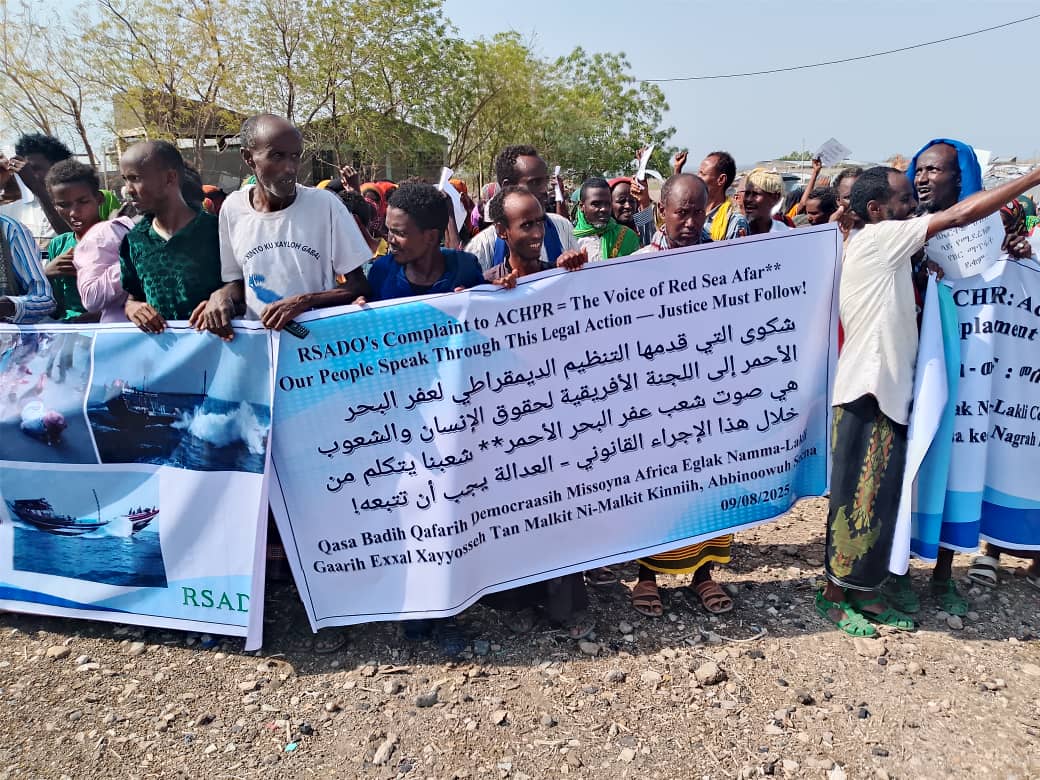By ABDIYARE SALAD
In Kampala, immigration enforcement has intensified in recent months, targeting undocumented foreigners in urban neighborhoods.
While officials describe these operations as necessary for law and order, many of those affected are refugees and asylum seekers—individuals who fled violence and persecution, only to find themselves trapped in limbo by Uganda’s suspension of refugee registration.
Registration Suspensions Leave Thousands Undocumented
Uganda has long been praised for its progressive refugee policy, hosting over 1.8 million refugees—one of the largest populations worldwide.
Yet, beginning in March 2023, the government suspended the registration of Somali asylum seekers in Kampala.
Following this, Eritrean asylum seekers also faced an indefinite suspension of urban registration in January 2025.
Additionally, Sudanese asylum seekers in January 2024 were redirected to Kiryandongo Refugee Settlement, located approximately 224 kilometers from Kampala, for registration.
Urban registration for Sudanese nationals is not allowed, which creates significant inconvenience for refugees who wish to live and work in the city, utilize their skills, and access opportunities in urban areas.
Most recently, new Ethiopian refugee registration in Kampala was halted in August 2025.
The combined effect of these closures has left thousands without legal recognition, refugee identity cards, or access to essential services.
New arrivals from these countries now find themselves forced either to live undocumented in Kampala or relocate to overcrowded settlements far from economic and social opportunities.
Enforcement Operations Intensify
Amid these suspensions, police and immigration authorities have stepped up raids in urban centers. In May 2025, operations in Old Kampala, Rubaga Road, and Namirembe Road resulted in the arrest of 22 foreign nationals and the verification of more than 100 others.
Earlier, in March, large-scale sweeps in Kabalagala, Kansanga, and Muyenga detained 177 individuals of diverse nationalities.
Additional arrests were reported in February and July, when Eritrean groups were intercepted en route to Kampala.
While authorities justify these operations as measures against irregular migration and crime, they have swept up many refugees who are undocumented only because of registration barriers.
Some detainees are later released when family members or advocates produce refugee cards, but others remain in custody, uncertain of their fate.
Life in Limbo Without Papers
For the asylum seekers, the consequences of being undocumented are severe, among others, bocked Access to Services.
Without refugee ID cards, they cannot access healthcare, formal education, or financial services.
Many children are missing school, and adults are excluded from the job market.
Constant Risk of Arrest
Routine police checks in Kampala’s refugee-populated suburbs expose undocumented individuals to harassment, detention, and potential deportation. Fear of arrest prevents many from moving freely or seeking assistance.
Economic Insecurity
Unable to work legally, refugees rely on informal jobs, which are often unstable and exploitative. When police raids target informal businesses, livelihoods collapse overnight.
Psychological Toll
Living under constant uncertainty, separated from family support, and burdened by memories of conflict, many report worsening mental health.
“I came here for safety, but every day I worry the police will stop me,” said one Somali refugee awaiting registration.
Policy Inconsistencies Undermine Legal Protection
Uganda’s 2006 Refugee Act and 2010 Refugee Regulations provide the legal framework for refugee protection, guaranteeing freedom of movement, the right to work, and access to essential services such as healthcare and education.
These provisions have earned Uganda international recognition for its progressive refugee policy and commitment to humanitarian protection.
However, the suspension of new registrations for Somali (since March 2023) and Eritrean (since January 2025) and most recently Ethiopian August 2025 asylum seekers, along with the redirection of Sudanese refugees to distant settlements, directly contradicts the spirit of this legal framework.
By limiting urban registration while continuing to arrest undocumented individuals, the system effectively penalizes refugees who are legally entitled to protection under the Ugandan Refugee Act, undermining both their rights and Uganda’s international obligations.
Shared Struggles, Common Voices
Refugee advocates, including the Refugee Law Project and other civil society organizations, have raised concerns about the treatment of undocumented refugees.
Legal experts stress that asylum seekers are not “illegal immigrants”—they are individuals with a legal right to seek protection under the Refugee Act and international refugee conventions.
Community voices echo the same message. Refugee leaders report that families are avoiding hospitals, schools, and even food distribution points for fear of arrest. Informal businesses, from small shops to street vendors, are disrupted by raids.
“We are treated like criminals, yet we have done nothing wrong except wait for documents that never come,” said a Eritrean community member in Kansanga who asked anonymity.
Balancing Security and Protection
Authorities argue that strict controls are necessary to manage irregular migration, prevent human trafficking, and protect national security.
Uganda’s location as a hub in East Africa makes it a destination for both refugees and economic migrants.
But refugee advocates insist that enforcement must distinguish between undocumented asylum seekers and irregular migrants.
Punitive measures against asylum seekers not only harm vulnerable individuals but also weaken Uganda’s long-standing humanitarian commitments.
The Way Forward
To restore balance between security and protection, several steps are urgently needed:
1. Reopen Urban Registration – Resume registration for Somali and Eritrean asylum seekers in Kampala, and consider flexible urban registration for Sudanese refugees, especially those with skills who wish to contribute to the city economy.
2. Enhance Transparency – Clearly communicate registration policies and eligibility criteria to reduce misinformation and exploitation.
3. Create Accessible Registration Hubs – Establish new centers near urban areas, reducing the need for long-distance relocation to settlements.
4. Train Law Enforcement – Ensure police and immigration officers can distinguish asylum seekers from irregular migrants.
5. Support Legal Aid & Advocacy – Expand partnerships with NGOs providing legal aid, advocacy, and psychosocial support for affected communities.
Conclusion
Somali, Ethiopians, Sudanese, and Eritrean asylum seekers in Kampala represent a growing group of refugees caught in limbo—denied urban registration, excluded from services, and targeted in immigration crackdowns.
Their plight underscores the urgent need for Uganda to align its enforcement practices with its own refugee laws and international humanitarian obligations.
Without immediate action to reopen urban registration and protect undocumented refugees, Uganda’s reputation as a safe haven risks being overshadowed by stories of fear, exclusion, and lost potential.
Restoring protection is not only a legal obligation under the 2006 Refugee Act but also a reaffirmation of the values that have long made Uganda a beacon for those fleeing danger.
Author : Abdiyare Salad Ali, The East African Daily, Kampala Uganda



